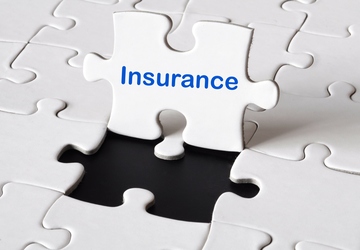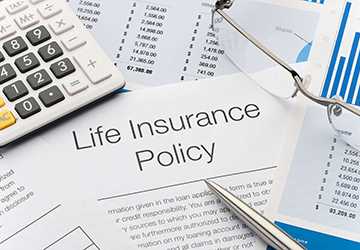When you're independent enough, you want to have your own home, whether an apartment or a suburban one. It's about the American Dream and enjoying the benefits of being independent. However, due to the recent increase in property and construction prices since Covid and current inflation, it can be expensive to come home and repair. Things get even more complicated when a natural disaster or unforeseen event damages your home. Reviewing or obtaining insurance is more important than ever. That's why we've put together some tips for new homeowners.
When you're independent enough, you want to have your own home, whether an apartment or a suburban one. It's about the American Dream and enjoying the benefits of being independent. However, due to the recent increase in property and construction prices since Covid and current inflation, it can be expensive to come home and repair. Things get even more complicated when a natural disaster or unforeseen event damages your home. Reviewing or obtaining insurance is more important than ever. That's why we've put together some tips for new homeowners.

Tip #1 - Study and Understand the Facts
Several factors can change insurance premiums when you buy a new home. A brick-and-mortar home pays higher dividends in earthquake-prone areas and lower premiums if it's less prone to fire in arid regions. Learn about these critical facts and how your home's features can affect your long-term insurance costs. Visit the Civil Defense website to learn more about these opportunities.
Tip #2 – If you can, cover home repair price spikes in your insurance
Most new homeowners don't realize that if their home is damaged by fire, natural disaster, etc., insurance will not account for rate increases in the area. Therefore, if, for some reason, labor and material costs have increased since you purchased the policy, you may not receive a benefit if the increase exceeds a specific limit.
So look for replacement cost guarantees from companies like Hanover, AIG, QBE, etc., that will cover any price spikes. Save only a few dollars annually because while inflation subsides quickly, disasters are random and can strike when you least expect them.
It's helpful if you're also considering revaluing your home during a renovation or complete remodel. As a result of these changes, the replacement value of your home has changed significantly, so you should adjust your insurance coverage accordingly.
Tip #3 - Manage your insurance and credit history
When applying for a loan, you should know that your background check includes your credit rating and history. The same applies to the conclusions for home contents insurance. You'll have better reward options if you still need to max out your credit cards or have too much debt. If you already have a loan or debt, you will be considered at risk and will only be offered higher premiums for a few options.
Rather than deciding to buy a new home or insurance, pay off your debt first, as buying a home with insurance is a primary spiritual and financial responsibility.
Tip #4 - Know Your Geographical Location
We're not discussing what you should or should have learned in high school. We're talking about significant insurance changes depending on the state or territory.
For example, they were living in Florida or Louisiana. They receive higher premiums than any other state because these areas are prone to natural disasters. Because of their coastal location, they are more prone to hurricanes and other natural disasters than other states.
But vice versa. For example, the premiums will be much lower if you proudly own a new home close to the fire or rescue services.

Tip #5 - Know Your Items, Not Just Your Assets
We talked about home insurance, but did you know most don't cover damage to your property? And even then, how can you tell them which were lost in the disaster? So check what insurance you have for your belongings, and list them all when confirming. Yes, everyone follows the insurance company's guidelines so that you can get everyone's claim fast.
Tip #6 - Consider Home Type and Make an Appraisal
Depending on your home type, some policies differ in terms of premiums and the proof you must provide. Apartments can be more stressful, while rentals require different insurance. Mixed living spaces with living and shopping areas also need more detailed insurance.
Once you have decided on the type of property you want, you should obtain an appraisal from an approved third party to have your paperwork ready before contacting an agent. Sometimes it's better to do a quick repair to minimize liability and get a better premium.
Tip #7 - Sweet Spot With Deductibles
Deductibles are like a double-edged sword. If you choose a higher deductible, you may pay less in premiums but more out of pocket if you want to claim coverage. If you choose a lower deductible, you may pay more in premiums. However, in an embarrassing situation or disaster, you'll get higher insurance payouts while paying lower claim amounts, making winning in the long run easier.
Some extra quick tips
Various Scenarios: Always ask about non-renewal notices, expiration periods, etc., so you know you're willing to take the risk if something happens.
· What is and isn't available online - First, learn about the different types of insurance. Are there better options for the same price? You can always consult a real estate professional or your friends and family and share your research with them for a better perspective.
· Google Nearby Search - A quick Google search including "nearby" can help you find an agent willing to show you options and meet with a local real estate agent. This way, you can get great home and insurance savings.
· Ask your friends - once you have selected some potential insurance companies, you can check online how they are rated or if they have any questions. Always discuss with your friends, colleagues, and family which providers they have. They offer detailed and honest opinions about these providers.
-
![Top 10 Insurance Tips for New Homeowners]()
- Top 10 Insurance Tips for New HomeownersWhen you're independent enough, you want to have your own home, whether an apartment or a suburban one. It's about the American Dream and enjoying the benefits of being independent. However, due to the recent increase in property and construction prices since Covid and current inflation, it can be expensive to come home and repair. Things get even more complicated when a natural disaster or unforeseen event damages your home. Reviewing or obtaining insurance is more important than ever. That's why we've put together some tips for new homeowners.
-
![Top 10 Insurance Mistakes You Must Avoid Today]()
- Top 10 Insurance Mistakes You Must Avoid TodayYour insurance policy is just like any legal contract. There is a lot that goes into the fine print and terms and conditions. It is important for you to understand the contract fully before you sign it. There are many mistakes that can get you stuck in situations where it is costing you a lot more money than you need to be paying.









